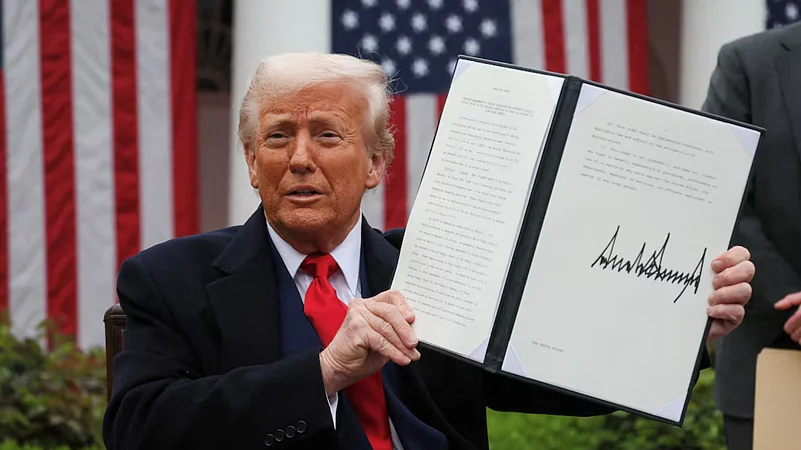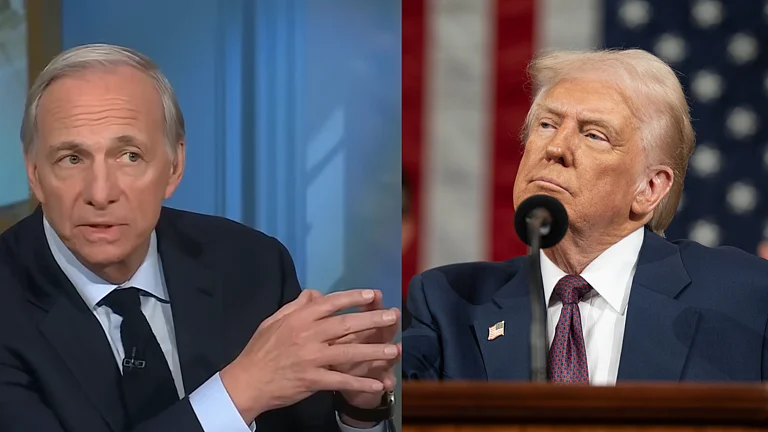Even as global financial markets respond to the latest escalation in the US-China trade war, foreign portfolio investors (FPIs) appear to be reallocating funds more toward China, leaving India on the sidelines for now. Sunil Jain, Vice President at Elara Capital, noted that despite broader expectations of India gaining from the geopolitical shifts, early signs suggest otherwise.
“Looking at the global asset allocators, foreign investments are playing in a way that incrementally, actual money is moving more aggressively into China than India,” he said.
“It's the other way around, rather, right now, as of now, since the time the trade war escalated last week or whatever 10 days back, the global asset allocators are putting more money into China than in India,” Jain added.
As of now, the average effective tariff rate of approximately 145 per cent on Chinese goods imported into the US. In response to the US tariff hike, China imposed an additional 50 per cent retaliatory tariff, bringing their tariff on American exports to 84 per cent.
This observation aligns with Elara Capital’s latest Global Liquidity Tracker, which showed that while foreign investors have pulled money from nearly all regions, domestic flows in both China and the US surged sharply during the same period. The US saw a 16-week high with $37.6 billion in domestic inflows, while China recorded a six-month high at $27 billion.
Despite a general pullback, redemptions in some key Asian markets continued. Taiwan and South Korea experienced sustained outflows for the fifth to sixth straight week. Meanwhile, India faced a total FPI outflow of $603 million, the highest in 12 weeks, driven by redemptions from GEM and AXJ funds. India-dedicated funds alone saw $352 million in outflows, reversing the $506 million inflows from the two weeks prior to the tariff announcement on April 3.
Still, domestic analysts point to bright spots. Ajit Deshmukh, Managing Director & Co-Head, Investment Banking at Equirus, believes India’s industrial and financial sectors are well-positioned to benefit from global capital rebalancing.
“So industrial sector will be the biggest beneficiary in my opinion. We take industrial as everything, chemicals, general industrial equipment and electronics, and everything is under the gig, as they call it. Financial services would also be a beneficiary because banks are in a very strong position right now. So banks will see inflows. So in terms of industry, you see chemical and financial services. Gig, gig and fig. Gig is general industrial group and financial services,” Deshmukh said.
Elara’s tracker also flagged the broader risk-off sentiment in global markets, highlighting that global high-yield bonds saw redemptions of $20 billion, the largest since the COVID-19 crisis. Analysts warn that such movements need to be watched closely as they reflect rising caution among global investors.
FPIs Outflow From India
As of now, FPIs have taken out Rs 31,575 crore from India’s equity markets between April 1 and April 11, amid sweeping tariffs imposed by the US on most nations, including India, as per a report by PTI.
Meanwhile, the FPI's investment stood at Rs 30,927 between March 21 and March 28.
Sectoral-Wise Breakdown of Indian Exports
Additionally, in 2024 India recorded over $50 billion trade surplus according to the Global Trade Research Initiative (GTRI), cited in the Macquarie report.
Following the pause on the proposed 26 per cent tariff by US President Donald Trump, several key Indian export sectors stand to benefit or at least avoid disruption. Pharmaceuticals accounted for $12.7 billion or 14 per cent of India’s total exports to the U.S. The electronics and telecom sector, with exports worth $14.4 billion, could also benefit significantly, especially as U.S. companies look to diversify away from China. Textiles and clothing, another major export line exports stood at $10.8 billion. Similarly, the machinery and computer hardware segment exported $7.1 billion to the U.S. and could be one of the sectors likely to gain from the ongoing U.S.-China supply chain realignment, as per Macquarie Global Services Private Limited.













